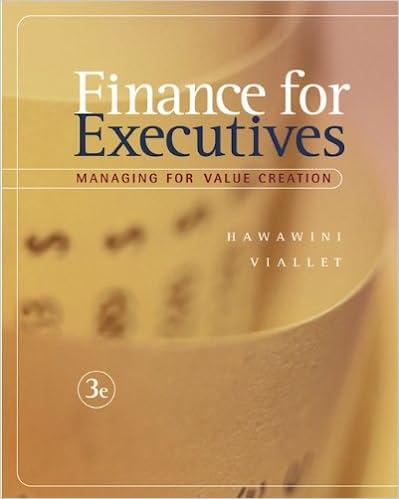
Hardmon Enterprises is currently an all-equity firm with an expected return of 11%. It is considering a leveraged recapitalization in which it would borrow and repurchase existing shares. Assume perfect capital markets. a. Suppose Hardmon borrows to the point that its debt-equity ratio is 0.50. With this amount of debt, the debt cost of capital is 5%. What will the expected return of equity be after this transaction? b. Suppose instead Hardmon borrows to the point that its debt-equity ratio is 1.50. With this amount of debt, Hardmon's debt will be much riskier. As a result, the debt cost of capital will be 7%. What will the expected return of equity be in this case? c. A senior manager argues that it is in the best interest of the shareholders to choose the capital structure that leads to the highest expected return for the stock. How would you respond to this argument? a. Suppose Hardmon borrows to the point that its debt-equity ratio is 0.50. With this amount of debt, the debt cost of capital is 5%. What will the expected return of equity be after this transaction? If Hardmon borrows to the point that its debt-equity ratio is 0.50 and the debt cost of capital is 5%, the expected return is %. (Round to one decimal place.) b. Suppose instead Hardmon borrows to the point that its debt-equity ratio is 1.50. With this amount of debt, Hardmon's debt will be much riskier. As a result, the debt cost of capital will be 7%. What will the expected return of equity be in this case? If Hardmon borrows to the point that its debt-equity ratio is 1.50 and the debt cost of capital is 7%, the expected return is [%. (Round to one decimal place.) c. A senior manager argues that it is in the best interest of the shareholders to choose the capital structure that leads to the highest expected return for the stock. How would you respond to this argument? A senior manager argues that it is in the best interest of the shareholders to choose the capital structure that leads to the highest expected return for the stock. How would you respond to this argument? (Select the best choice below.) O A. False, it is in the best interest of shareholders to choose the capital structure that leads to the lowest expected return for the stock. OB. True, because this would also lead to the highest earnings per share. O C. True, because this will result in a higher market value for the stock. OD. False, returns are higher because risk is higher and the return fairly compensates for the risk







